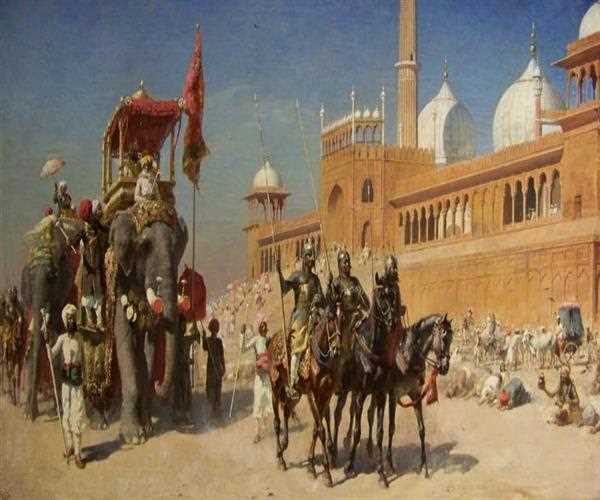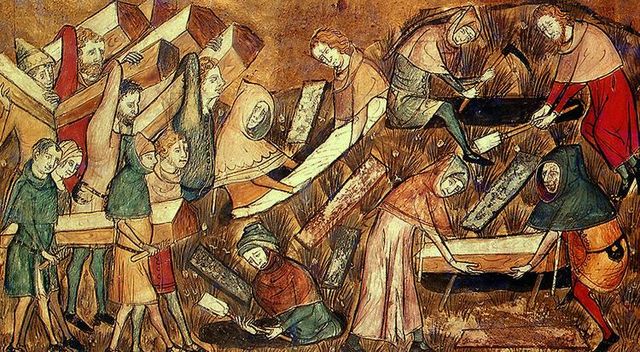
05-Jul-2022 , Updated on 7/5/2022 8:10:43 AM
How Muslims Ruler encroached on Indian Glory
For centuries, India has been a land of great culture and history. But during the early years of Muslim rule, this all changed. India was conquered and divided among various Muslim rulers, with little regard for its former glory. As a result, many cultural practices and traditions were lost.
In post-Muslim India, there is still much work to be done in restoring lost heritage and restoring the country to its former glory. This post explores the impact of Muslim rule on Indian culture and discusses the problems with Muslim rulers' rule in India. It also provides a timeline of India's Muslim rule to understand the events better.
The rise and fall of Indian culture during Muslim rule
During Muslim rule in India, the Indian culture experienced a great deal of change. This period also saw a decline in Hindu culture, as Muslims converted many Hindus to Islam. This led to a decline in the Hindu religion and its customs.
Muslim rule also led to the spread of Islam, which inspired new architecture, art, and literature. Some positive effects like increased access to education for women under Muslim rule. Ultimately, this period was a time of great growth and change for the Indian culture. It is an interesting period that is worth exploring in more detail.
Background of the Muslim ruler's rule in India
The Muslim ruler's rule in India is known for its numerous changes and encroachment on Indian glory. Hinduism remained dominant, but Muslims were granted special privileges under Muslim law.
These privileges allowed Muslims to rule under Islamic law and maintain their cultural and religious traditions. This led to a decline in Indian prestige and increased Islamic influence.
In addition, there were major changes during this time, such as introducing Arabic numerals and writing systems into India. All of these events had a significant impact on the course of Indian history.

Post-Muslim India
Since the Muslim ruling class, or Mughal Empire, encroached on and eventually replaced the Hindu Rajput kingdoms in North India in the 17th century, the Muslim faith has become widely practised in India.
While religious freedom has increased significantly in recent years, challenges remain, including violence against minority groups such as Hindus and Sikhs.
As India transitions into a post-Muslim society, it is important to remember the history of this period and the important role played by the Muslim ruling class in the country's history.
Pre-Muslim India
Muslim rulers began to take over many areas of Indian society and culture in the early years of the Islamic era.
This led to the erosion of Hindu heritage and values — a process that would eventually culminate in the downfall of pre-Islamic India.
This timeline details the events leading up to this decline and provides an insight into the decline of a great Hindu empire.
Impact of Muslim ruler's rule on Indian culture
Since the time of Muslim rulers' rule over India, their influence is still apparent in the country's culture. Their rule led to the decline of Hinduism as the major religion in India and the rise of Islam as the dominant religion.
This is evident in the establishment of educational institutions, which continue to operate even after the British occupation from 1857-1947.
Despite this negative legacy, the Muslim ruler's rule left an important legacy on Indian culture that shapes its current form. Indian Muslims play a significant role in the country's social, economic and political life.

The problems with Muslim ruler's rule in India
The people of India did not welcome Muslim rulers' rule in India. Their encroachment on Indian glory caused many problems, the most notable of which was their taxation of citizens more than necessary.
This episode is a clear example of the problems that can occur when a foreign power attempts to rule over a country with a different religion and culture. It is also a reminder that it is important to be aware of the cultural differences between countries to avoid misunderstandings or conflicts.
Reasons for Muslim ruler's takeover of India
The Muslim ruler of India, Mahmud of Ghazni, was known for conquering northern India in the 11th century. He is also credited with encouraging Islamic learning and culture to create a unified Muslim kingdom across northern India.
This, in turn, helped to weaken the Hindu caste system and ultimately enabled the Muslim ruler to take over. Mahmud's military and bureaucratic prowess were essential in consolidating his power. He was able to do this by creating a strong military and bureaucracy as well as promoting Islamic values.
This period of Muslim rule is often seen as a golden age for Indian culture, as it helped preserve many of its classical texts and architecture.

The Fall of the Muslim Empire
The Muslim Empire was once a mighty force in the world, ruling over vast areas. However, their decline and eventual fall is an interesting story with significant implications for today. In the 8th century, Arabs and Muslims began migrating to India.
This migration led to a gradual increase in Muslim rule over Indian society. Islam is still an influential factor in South Asia. This migration is still a topic of debate among historians, as it is not fully understood. What is known is that this event has had a significant impact on the development of South Asia and its people.
Growing Pains during Muslim Rule
Muslims ruled India for a long time, and it was not without its growing pains. The rule of Islam was strict and required many changes to Indian traditions and way of life. Hinduism continued to be the religion of the majority in India during Muslim rule, creating tension between the two cultures.
There were even instances where Muslims attempted to convert Hindus to Islam! Despite the difficulties, however, the Muslim rule is considered a golden era for Indian culture as it ushered in various innovations and helped shape the country into what it is today.

A timeline of Muslim rule in India
The Muslim rulers of India were a force to be reckoned with. From their stronghold in Baghdad, they quickly expanded their influence throughout the subcontinent. They were responsible for many Indian culture and technology advances, including education and irrigation systems.
By 1206, they had established a ruling dynasty that would last for over eight centuries - until it was overthrown by the British. In the 8th century, Arab traders started trading with India and soon began to convert to Islam.
This gradual process of Islamization is often cited as one of the reasons for the gradual rise of Muslim rule in India. The Muslims of India combined the best of both Indian and Arab cultures, creating a unique and powerful empire that would later be remembered as one of the greatest in world history.
FAQ's
When did the Muslim rule begin in India, and how long was it before they declared themselves to be a sovereign power over all other religions of their time, including Christianity, Judaism, Buddhism, Zoroastrianism etc.?
Muslim rule in India began in the middle of the 8th century with Muhammad's migration from Mecca to Medina. He declared Muslims a sovereign power over all other religions of their time, including Christianity, Judaism, Buddhism, Zoroastrianism etc., in 1206 AD.
Who were the first invaders of India from Arabia, and when did Muslim rulers invade it?
The first invaders of India from Arabia were the Arabs in the 7th century AD. The invasion by Muslim rulers began in the 8th century AD.
When did they begin to impose Islamic Law on their subjects, and what consequences resulted from this law change as far as non-Muslims were concerned?
The first Islamic state was the Abbasid caliphate, which was founded in 756. This caliphate imposed Islamic law on its subjects, which non-Muslims found difficult to accept. As a result, Christian communities (particularly the Monophysites) were persecuted, and some were even forced to convert to Islam.
What are some of the legacies of Muslim rule in India centuries after they left?
There are many legacies of Muslim rule in India, centuries after they left. Some of the most notable legacies are the development of a strong and centralized government, the creation of several universities and other institutions of higher learning, as well as a flourishing economy.
Additionally, Muslim rule helped to encourage the spread of education and other developments among the Hindu population and create a more pluralistic society.
What were some of the reasons why Muslim rulers were able to conquer so many territories in India?
Muslims conquered so many territories in India due to their superior military capabilities and willingness to integrate into local societies.
How did the Muslims change religious and cultural practices in India during their rule?
The Muslims ruled over India for about several hundred years. During their rule, they changed religious and cultural practices in India in many ways. One way was by force when they made people convert to Islam or paid them money to do so.
Other ways were by persuasion and example. The Muslims also built many mosques and other places of worship throughout India.
When did the Muslim rulers start encroaching on Indian glory?
The Muslim rulers started encroaching on Indian glory around the time of the Prophet Muhammad.
After reading through this post, you will be able to understand the background and impact of Muslim rule on Indian culture. You will be able to see the negative effects of Muslim rule on India and the reasons for the ruler's takeover.
You will also understand the timeline of Muslim rule in India and the empire's eventual fall. Make sure to leave your thoughts in the comments section below!
Also Read: Aurangzeb: The Controversial Mughal king

Student
Hello, I am a mechanical engineering student from Delhi Technological University. I've written articles, journals, and social media postings for "Panache"—The Fashion Society of DTU, MindStick Software Private Limited, Zayuche LLP, and OtakuKart. I learned more about the subject through researching it, which has aided my growth.
Join Our Newsletter
Subscribe to our newsletter to receive emails about new views posts, releases and updates.
Copyright 2010 - 2026 MindStick Software Pvt. Ltd. All Rights Reserved Privacy Policy | Terms & Conditions | Cookie Policy